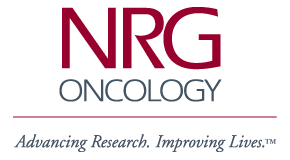

NSABP Members' Area
Password Protected - Access
Limited to NSABP Participating
Institutions Only
NSABP Foundation, Inc.
General NSABP Information
Financial Conflicts of
Interest Policy
Contact the NSABP
Employment

Clinical Trials Information
Clinical Trials Overview
Protocol Chart
Never Say Lost
Treatment Trials Information
Protocol B-51
Protocol B-52
Protocol B-53/S1207
Protocol B-55/BIG 6-13
Prevention Trials Information
Protocol P-1 - BCPT
Protocol P-2 - STAR
To report problems, ask
questions or make comments,
please send e-mail to:
Webmaster@nsabp.pitt.edu
Adjuvant Therapy For Very Young Women With Breast Cancer: Need For Tailored Treatments
Goldhirsch A, Gelber RD, Yothers G, Gray RJ, Green S, Bryant J, Gelber S, Castiglione-Gertsch M, Coates AS
Journal of the National Cancer Institute Monogr (30):44-51, 2001
Abstract
Breast cancer rarely occurs in women below the age of 35 years. Data from various sources indicate that diagnosis at such an age is associated with a dire prognosis mainly because of a more aggressive presentation. Although the effect of chemotherapy for premenopausal patients is substantial, recent evidence on 2233 patients suggested that very young women with endocrine-responsive tumors had a statistically significantly higher risk of relapse than older premenopausal patients with such tumors. In contrast, results for younger and older premenopausal patients were similar if their tumors were classified as endocrine nonresponsive. Information from studies on 7631 patients who were treated with chemotherapy alone in trials of three major U.S. cooperative groups showed a similar interaction between the effect of age and steroid hormone receptor status of the primary tumor. Better treatments for very young patients are required and may involve ovarian function suppression in addition to other endocrine agents in patients with endocrine responsive tumors and a more precise investigation of chemotherapy and its timing, duration, and intensity in those with endocrine nonresponsive tumors. Very young women with this disease are faced with personal, family, professional, and quality-of-life issues, which further complicate the phase of treatment decision making. The development of more effective therapies for younger patients requires tailored treatment investigations and cannot rely on information predominantly contributed from older premenopausal women.
International Breast Cancer Study Group (IBCSG), Bern, Switzerland.